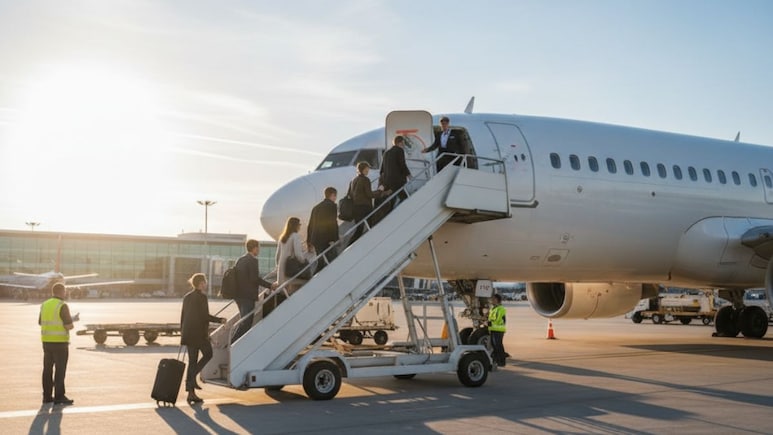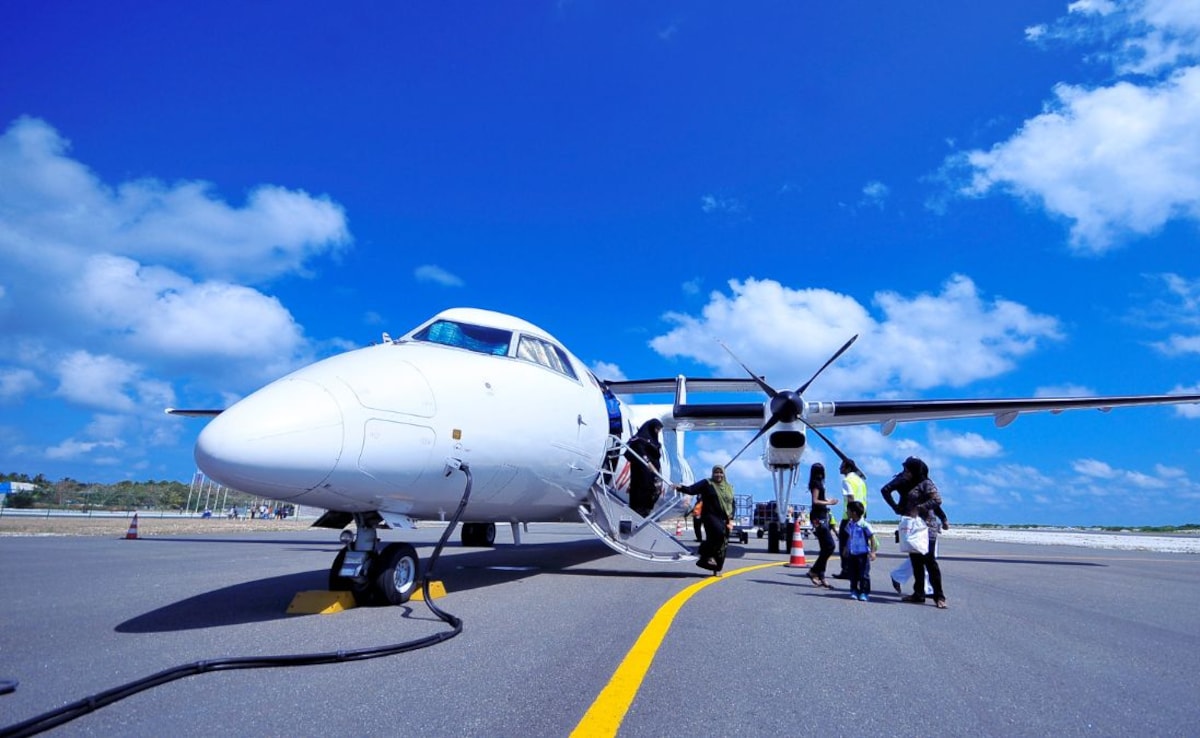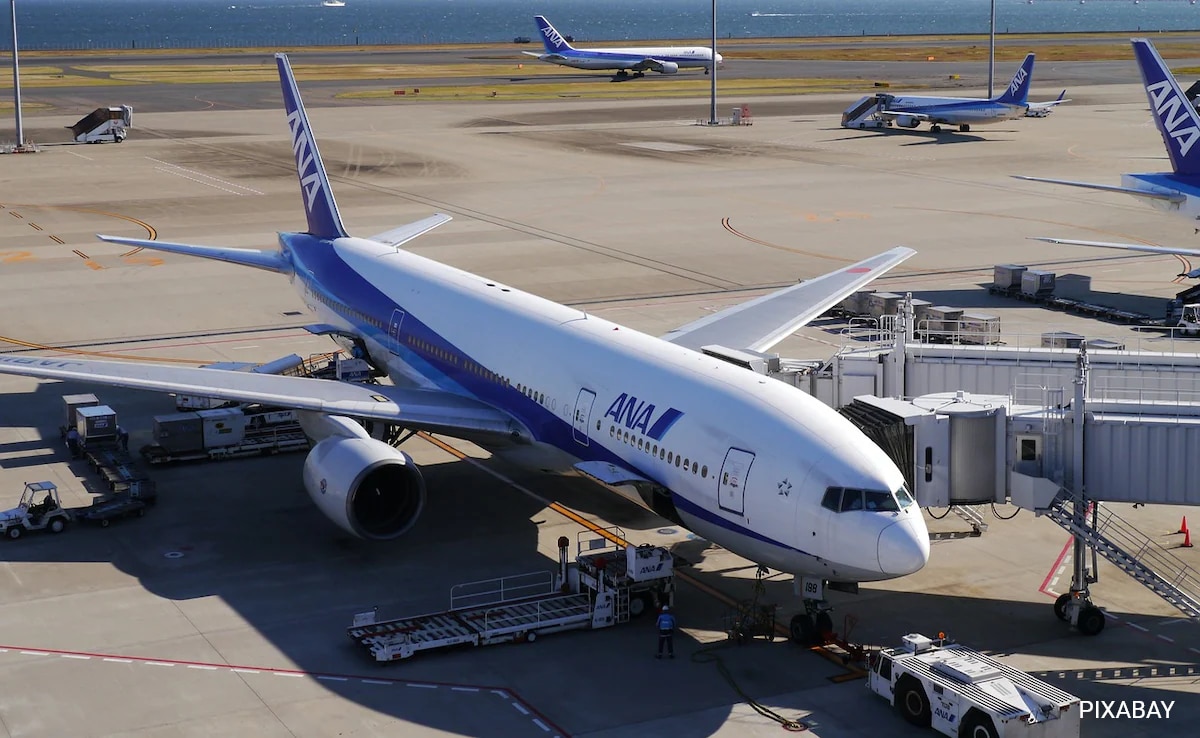
- Boarding from the left side of planes is a tradition borrowed from maritime practice.
- Fuel tanks are on the right side, so boarding left keeps passengers away from hazards.
- Single side boarding streamlines luggage handling and maintenance on the ground.
Have you ever noticed that no matter which airline you fly with, passengers always board planes from the left side? It is one of those small details most travellers never think about, yet it has been a consistent rule for decades. No one really questions it, but there are interesting reasons behind it that very few people know. Why the left side? Why not the right? Below, we'll share 5 interesting reasons why this rule is followed and how it helps keep air travel safe and efficient. These insights might make you look at boarding a plane in a whole new way.
Here Are 5 Reasons Why You Always Board Planes From The Left Side:
1. Inspired By Maritime Tradition
Early aviation borrowed many practices from ships, including the way passengers boarded. Ships are boarded from the port side, which is the left side when facing forward. This convention carried over to airplanes, creating a consistent approach that pilots and crew could rely on.

Photo Credit: Canva
2. Safety Around Fuel Tanks
Fuel tanks and certain equipment are usually located on the right side of the plane. Boarding from the left keeps passengers away from these potentially hazardous areas. This simple precaution reduces risks and ensures safety during boarding and ground operations.
3. Streamlined Ground Operations
Having a single boarding side makes life easier for ground staff. Handling luggage, refuelling and performing maintenance checks becomes more efficient when crew members always know which side passengers will approach. This reduces confusion and speeds up turnaround times.
4. Pilot Coordination
In early aircraft, pilots usually sat on the left side of the cockpit. Boarding from the left made it easier for pilots and crew to coordinate entry and pre-flight procedures. Even today, this tradition helps maintain a smooth workflow inside the cockpit.
5. Tradition And Standardisation
Once left-side boarding became standard, it stuck. Changing the procedure would create unnecessary confusion for airlines, ground crew and passengers. Following tradition ensures consistency, efficiency and safety across airports worldwide.
Now that you know why boarding is always from the left, you might wonder about a few other intriguing airplane facts:

Photo Credit: Pixabay
Answers To Common Questions About Airplanes You Might Want To Learn
Why Are Airplane Windows Round, Not Square?
Round windows reduce the risk of structural stress. Square corners create points where cracks can form, which can compromise the safety of the aircraft over time.
Why Do Airplane Windows Have Tiny Holes?
Those tiny holes, called "bleed holes," help regulate air pressure between the window panes. They prevent fogging and reduce stress on the outer pane, keeping the window safe and clear.
Why Do Cabin Lights Dim During Landing And Take-off?
Cabin lights are dimmed to help passengers' eyes adjust to outside light levels. This ensures better visibility in case of an emergency evacuation and helps crew monitor the cabin more effectively.
Why Are Airplanes Painted White?
White paint reflects sunlight, reducing heat absorption and keeping the aircraft cooler. It also makes it easier to spot cracks, leaks or damage during inspections, which improves safety and maintenance efficiency.
So, the next time you step onto a plane, take a moment to notice the left-side boarding, it's a small detail with a long history of safety, efficiency and tradition behind it.
Track Latest News Live on NDTV.com and get news updates from India and around the world

